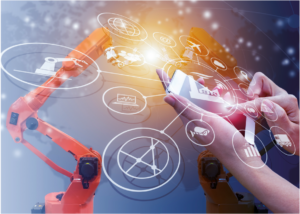
While it may be difficult to fathom, it is estimated that more than 75 billion IoT devices will be connected by 2025. Even more importantly, those devices will become smarter, more reliable and more protected thanks to new telecommunications systems (5G) and new ways of managing and storing data. While today the Internet of Things is closely tied to big data and the main cloud computing systems, in the coming years it will evolve to become more decentralized and widespread. For this reason, business strategies are now focusing on processing some IoT device data on industry-specific networks: in other words, servers dedicated to particular fields of application. The biggest developments in this sense can be seen in the manufacturing industry, and in particular in machine-to-machine technology, a cornerstone of Industry 4.0. Other essential aspects of this evolution include the miniaturization of technologies and their ever-lower dissipation of energy.
The Cavagna Group is taking a proactive approach to these developments. In addition to its own IoT research in-house, the Group is also involved in high-level engineering partnerships that have already led to the concrete application of the Internet of Things—and all the advantages associated with it—in certain products. For example, there are digital valves for medical gases, or remote control systems designed specifically for automatic changeovers on LPG cylinders. There are clear advantages to having more artificial intelligence directly in Cavagna products. First of all, it has virtualized some processes; in addition, it has led to extremely reliable remote control capabilities. The Cavagna Group has recently expanded its unit dedicated to the Internet of Things in order to better develop IoT projects as well as monitor current and future applications (planned for the coming months). Each member is an expert in his field, and they are sure to bring added value to the Group’s IoT services.









